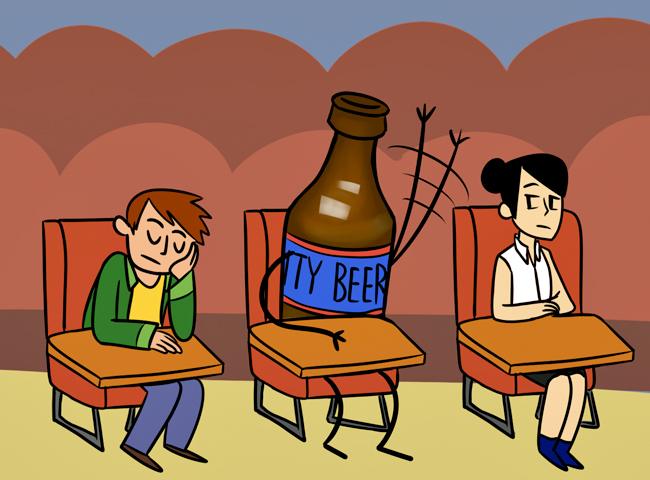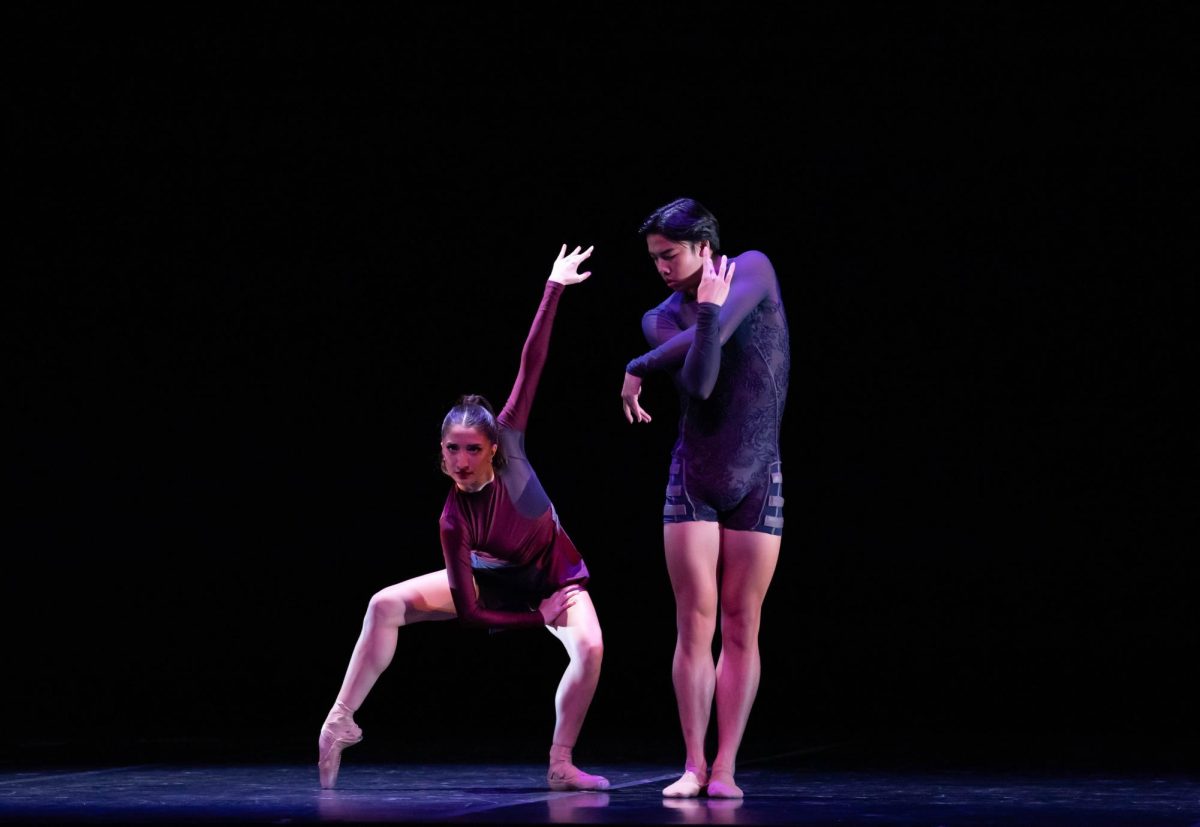“Write drunk; edit sober” is often attributed to Ernest Hemingway, even though he never said it. Still, there may be something to the sentiment. Hemingway was certainly known for his indulgences in libations, as were Faulkner, Poe and Shakespeare, and that’s just the tip of an iceberg that extends well past the written page and into other fields. This has left many struggling artists wondering whether the secret to overcoming a creative block may only be a few drinks away.
A 2012 study from the journal “Consciousness and Cognition” attempted to answer this question using the Remote Associates Test, in which subjects are given three words and asked to find another word they all connect to. For example, the words “motion,” “poke” and “down” all connect to the word “slow”: “slow motion,” “slowpoke” and “slow down.”
The researchers discovered that the subjects who received a few cranberry-vodka drinks actually did better on this test. While most problem-solving tests involve focused thinking, it’s best to let your mind wander a bit for the Remote Associates Test. The belief is that, by impairing your concentration, alcohol actually improves your ability to find solutions on this test.
So does that mean that you should down a few shots before beginning that essay for your comparative literature class? Probably not.
For the sake of this study, the scientists only brought the subjects up to a blood-alcohol content of around .07 — buzzed to be sure, but still below legal intoxication. Ethics prevented the researchers from finding out how subjects would do if they were rip-roaring drunk, but it’s likely that there’s a limit to this effect. Ethical considerations also prevented women from participating in the study, on the off chance that they may have been unknowingly pregnant, so, while it’s unlikely, it’s possible that only men receive this “creative boost” from alcohol.
Additionally, while the Remote Associates Test does require creative solutions, a strong performance doesn’t necessarily mean that the person is more creative. Quickly coming up with a word to connect three unrelated terms is a far cry from writing “A Farewell to Arms.”
The point is that this is one study with severe limitations, and although there are certainly implications, they may not be meaningful.
Other research has used surveys to look at connections between alcohol use and creativity in a broader sense without any significant results. Alcohol doesn’t fuel creativity, and, similarly, it doesn’t appear that creative individuals flock toward alcohol or drugs. There’s no shortage of famous names associated with alcoholism, but, unfortunately, that’s probably just a result of the prevalence of alcohol abuse in our society. Alcoholism also exists in non-famous people who fight their inner demons less publicly.
But this is a tricky subject to nail down scientifically, and all these studies can do is look at correlations, or lack thereof. For that reason, it’s impossible to tell whether, for instance, Amy Winehouse could have made her two studio-produced albums without alcohol. But it is undeniable that alcohol is responsible for her inability to record a third.
As with all things, enjoy your alcohol in moderation. If it seems to help you creatively or socially, then enjoy its advantages. However, if the relationship turns from assistance into reliance, seek help. Whatever benefits alcohol may have, it’s not worth risking your life for.
But if you happen to let your friends Jack and Johnny write that paper with you, be sure to edit it once they’re out of your system. After all, plenty of “creativity” takes place Friday nights on Sixth Street, but it doesn’t mean you’re proud of it Saturday morning.















